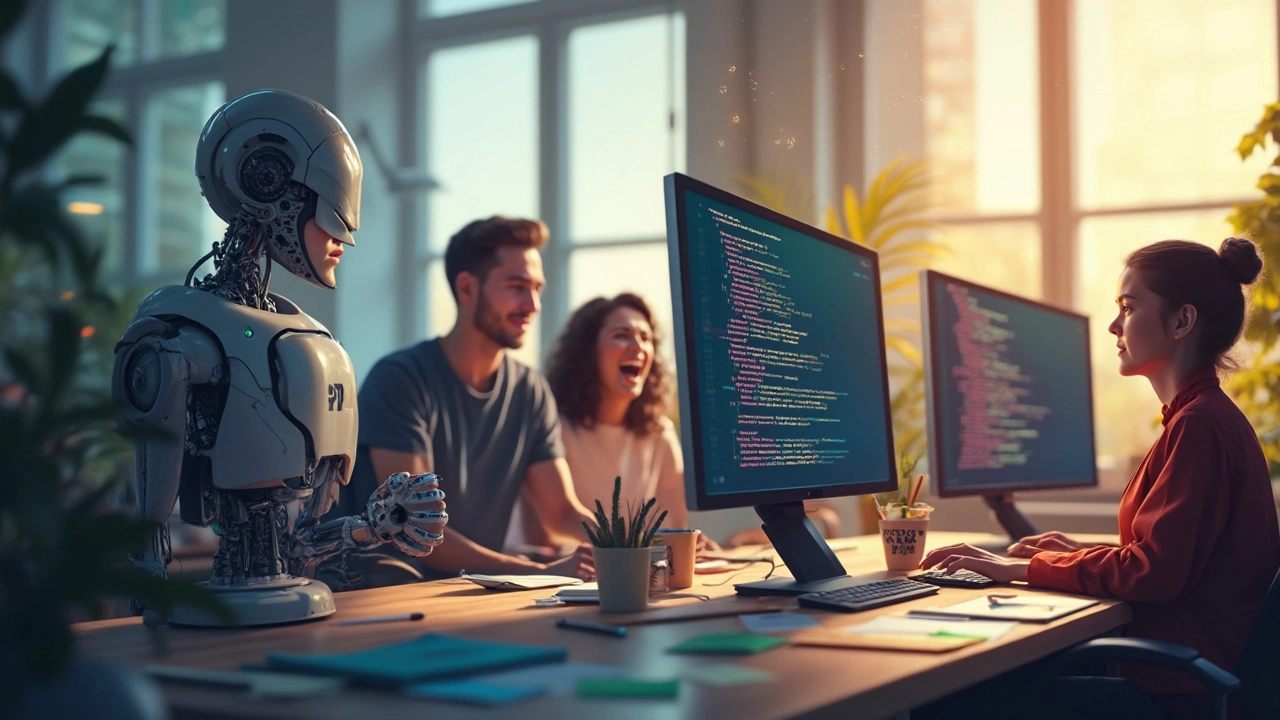Artificial intelligence isn’t a sci‑fi fantasy anymore – it’s sitting in the tools you use to build websites. From AI‑powered layout generators to content‑optimisation plugins, these helpers can cut hours of work and make your site more user‑friendly. If you’re curious how AI can level up your design process, keep reading.
First up, try an AI‑based mockup creator. Upload a simple sketch or describe the look you want, and the tool rolls out a fully responsive design in minutes. You can then fine‑tune colours, fonts, and images without starting from a blank canvas. Another handy gadget is AI copywriting. It drafts meta titles, product descriptions, or blog intros that are SEO‑friendly, so you spend less time staring at a blank page.
Don’t forget image optimisation. AI compressors shrink file sizes while preserving visual quality, which speeds up page loading – a key ranking factor. Plug‑ins like these run in the background, so you barely notice they’re there, but Google certainly does.
SEO used to mean endless keyword research and manual audits. Now AI can analyse your whole site, suggest internal linking opportunities, and highlight content gaps in seconds. Services that scan SERP trends feed you a shortlist of keywords that actually drive traffic, so you avoid chasing vanity terms.
Another neat trick is AI‑driven schema generation. The algorithm looks at your page structure and automatically adds the right JSON‑LD markup. That boosts rich‑snippet chances without you writing any code.
All these AI features are designed to be plug‑and‑play. You don’t need a PhD in machine learning – just a willingness to experiment. Start with a free trial of one tool, see the impact on your workflow, and expand from there.
Remember, AI is a helper, not a replacement. Keep an eye on the outputs, tweak where needed, and combine the speed of AI with your creative judgment. The result? Faster builds, cleaner code, and a site that feels modern without the usual grind.
Ready to give AI a spin? Pick a single tool—maybe an AI layout generator or a copy assistant—and integrate it into your next project. Track how much time you save, watch your SEO metrics improve, and you’ll quickly see why AI is becoming a staple in web design arsenals.

This article looks at whether AI will replace front-end developers or if humans still have a solid place in the field. It dives into what AI can already do, why human creativity and problem solving still matter, and the biggest limitations of current tech. Readers get the latest facts, funny stories from real workplaces, and tips to future-proof their careers. No fluff, just practical advice for working developers and anyone curious about where the job market is headed.
Read More
The integration of artificial intelligence into various sectors has left many speculating about the future roles of professionals, including freelance web developers. As AI evolves, it becomes imperative to explore its potential to substitute programmers in the coming years. This article delves into current functionalities of AI in the coding world, its limitations, and how web developers can adapt to the changing landscape. By understanding the current trends, developers can prepare for a future where AI might assist rather than wholly replace their skills.
Read More